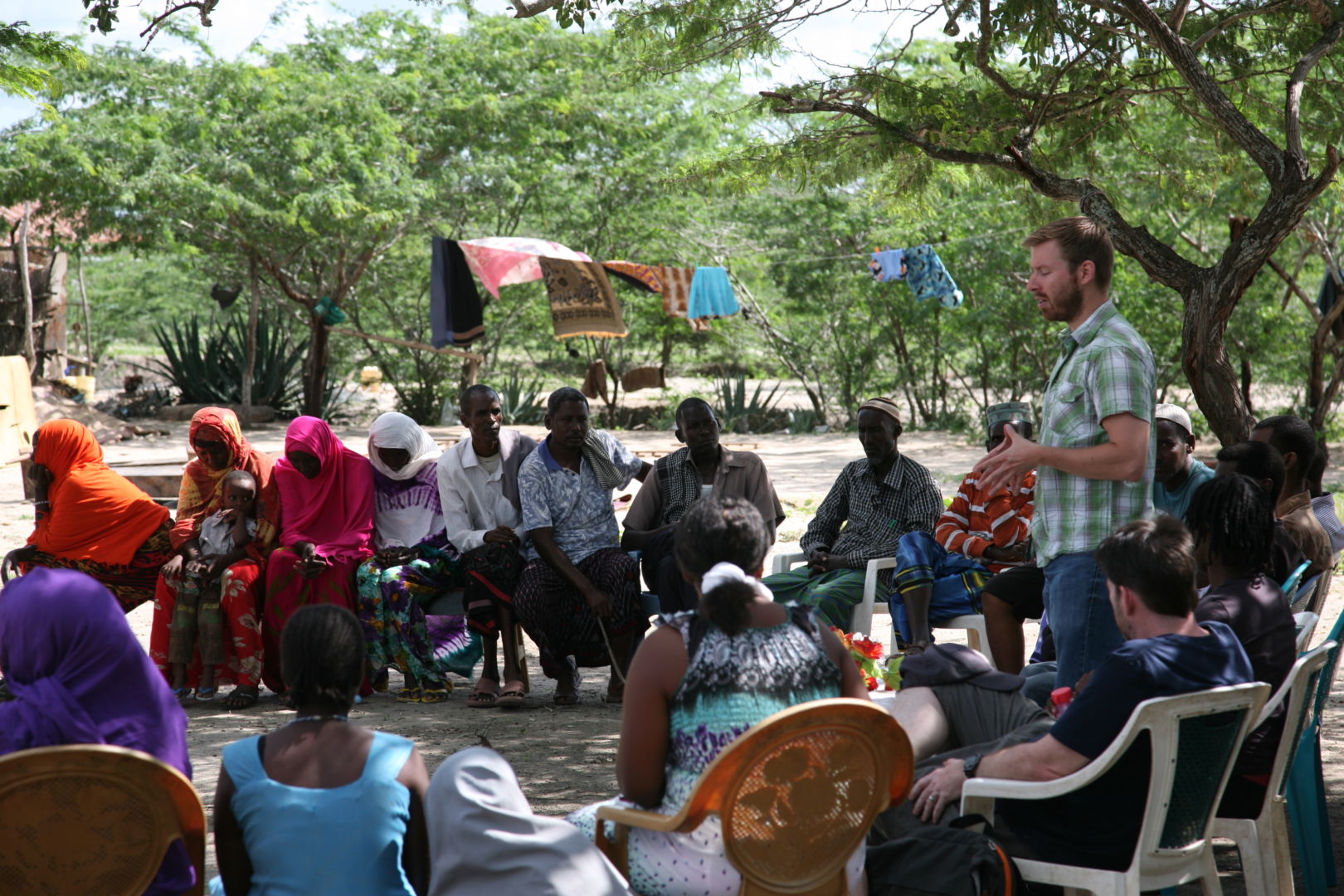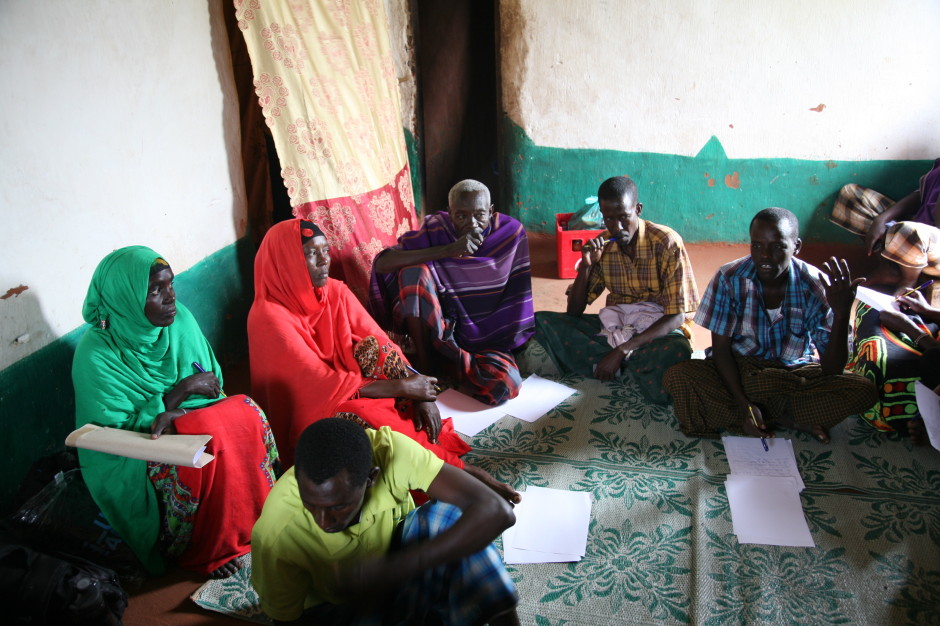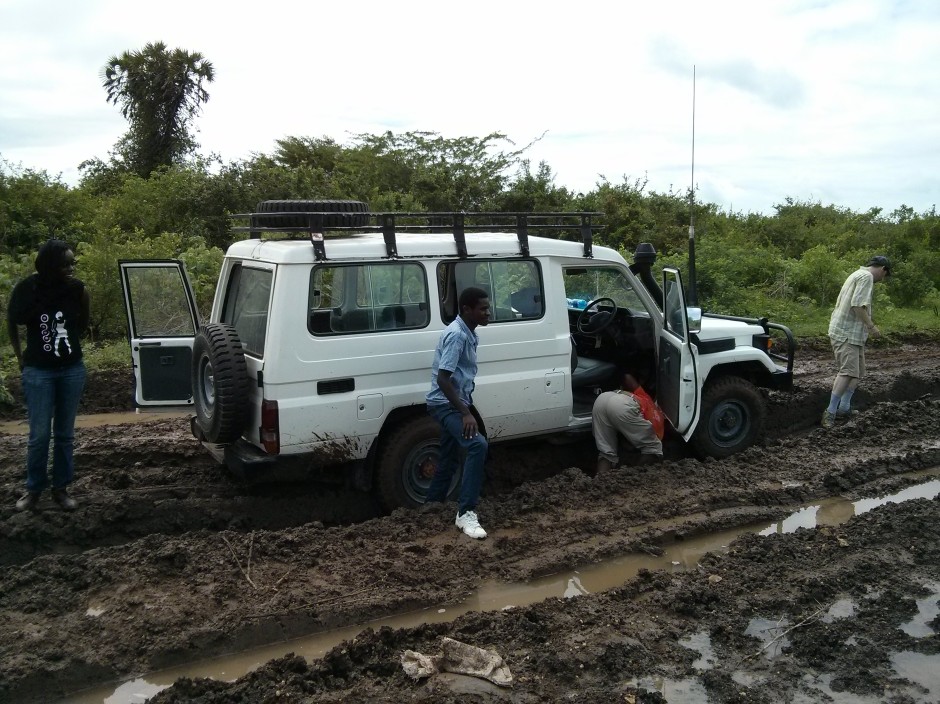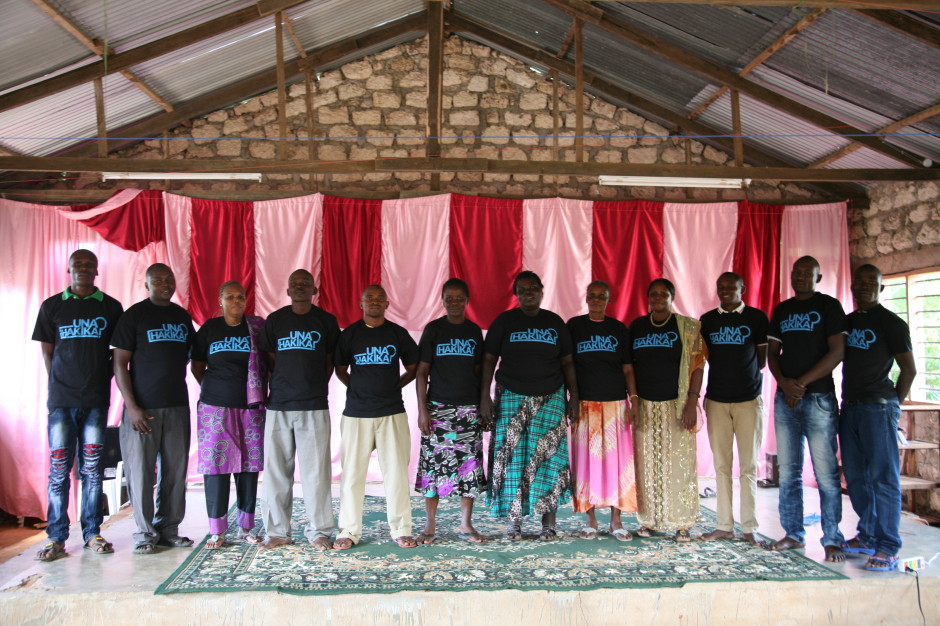By John Green and Christine Mutisya
During our second field visit to the Tana Delta our team’s focus was sensitizing the community to the objectives of Una Hakika through the training of volunteer community ambassadors. Community ambassadors serve as representatives of Una Hakika in their respective communities. Una Hakika Ambassadors are individuals who are passionate about building and maintaining peace in their communities, and contribute to the project by texting and calling in to report harmful rumours, assisting in the verification of rumours, as well as disseminating accurate information to their respective villages. Their role is crucial in all stages of the Una Hakika system.
During our three-week training outreach we trained a total of 193 volunteers from 16 villages throughout the Tana Delta – Garsen, Mnazini, Kibusu, Tarassa, Ngao, Kipao, Dide Waride, Kipini, Shirikisho, Golbanti, Oda, Nduru, Semikaro, Ozi, Handaraku & Kilelengwani. We employed a criteria that guaranteed inclusion and representation in terms of ethnicity, religion and gender and aimed to coved a wide geographical area in the Tana Delta, taking into consideration areas that were highly affected by the violence, moderately affected and not affected at all.
We were overwhelmed by the number of people who volunteered as community ambassadors and impressed by their eagerness to ensure the success of Una Hakika and foster peace in the region. Our training sessions offered us invaluable insights on the region, such as why rumours are imminent, why tension is brewing in the region and how to best approach the peacebuilding process. One volunteer from Kipini pointed out that as an individual the best way he could contribute to peacebuilding in the region was to join Una Hakika and be the first to report harmful rumours to Una Hakika from his community. Another ambassador expressed the need for herself and other volunteers to report potentially harmful rumours in a timely manner and remain unbiased as they report rumours in order to nurture peace through accurate information.
Ironically, at one point one of our training sessions was cut short by a disruptive rumour. It was alleged that gunshots were heard and community members ran for cover. This frightened those in attendance and our trainees weren’t able to continue with the session as some were worried about their families’ safety. An outsider would have wondered how an unverified rumour could cause such panic and fear, but it became clear that the massacre experienced during the ethnic violence during 2012-2013 left the people traumatized and emotionally scarred. After verifying the information it turns out the panic was sparked when a child threw a stone on a roof and a woman nearby mistook the sound for a gunshot, which she acted on by screaming and running through the village announcing that she heard a gunshot. The woman’s reaction instilled great fear in the village and the loss of life of one community member as a result of high blood pressure due to the panic. This unfortunate incident serves as an example of the harmful misinformation that Una Hakika is trying to curtail, such that if one hears a potentially dangerous rumour they question its validity before making any decision or taking any action.
Overall our field visit went as planned despite some challenges. Frequent blackouts caused by steady rains posed a problem to our work capacity, which we anticipated and addressed by bringing our own generator. Transportation and mobility was also a hindrance, as during rainy season many roads are impassable. Some villages were completely inaccessible when it rained, forcing us to reschedule at the last minute. At one point, as we were heading to Semikaro village our 4×4 landcruiser got stuck in the mud due to the bad state of the roads worsened by the rains.
Our outreach throughout the Tana Delta revealed the great potential of our network of community ambassadors in terms of sustaining the Una Hakika project. The community ambassadors will be a source of information, reporting harmful rumours via text messages and calls, and will also be pivotal in verifying the information. Having a significant number of volunteers in each village helps to ensure the reliability of information we receive and disseminate, all while building trust in their respective villages. Community ambassadors are the propellers of Una Hakika and their ongoing engagement in their communities will help foster critical thinking when it comes to rumour mongering in the Tana Delta region with the aim of preventing violence.




